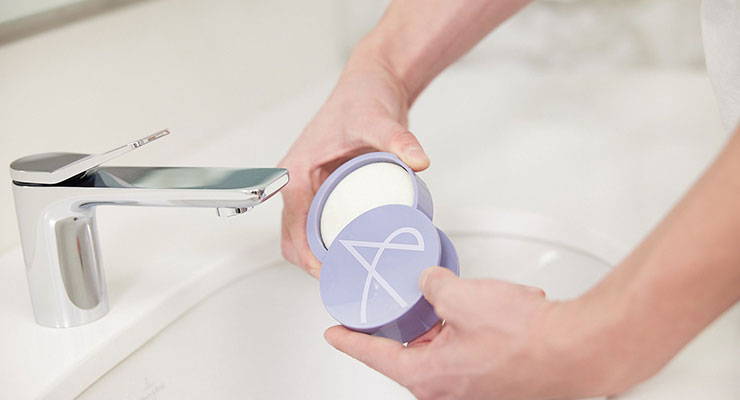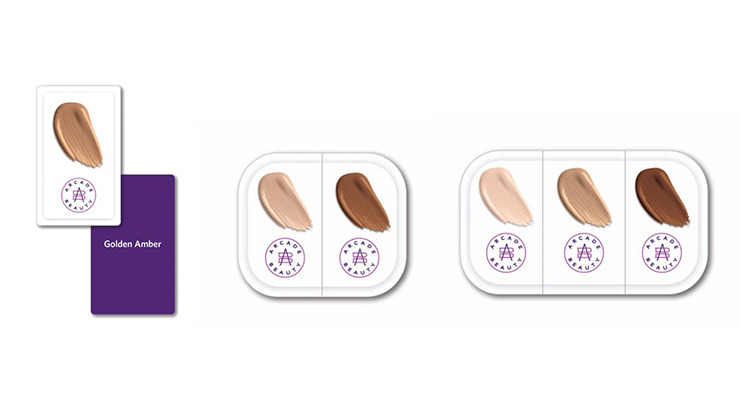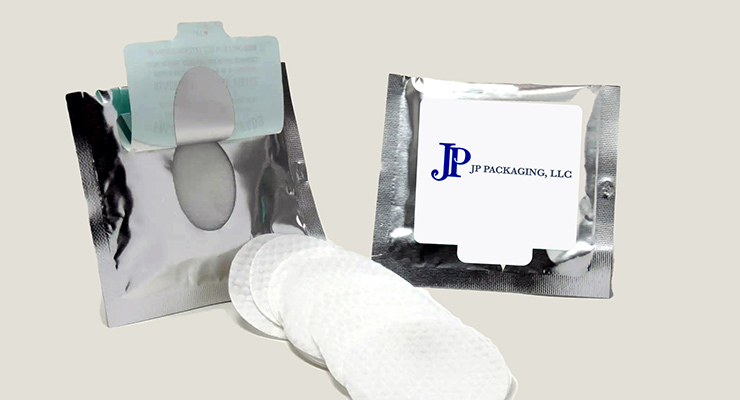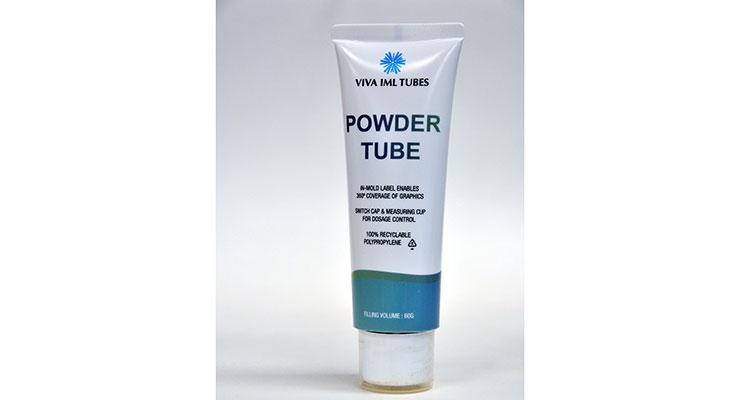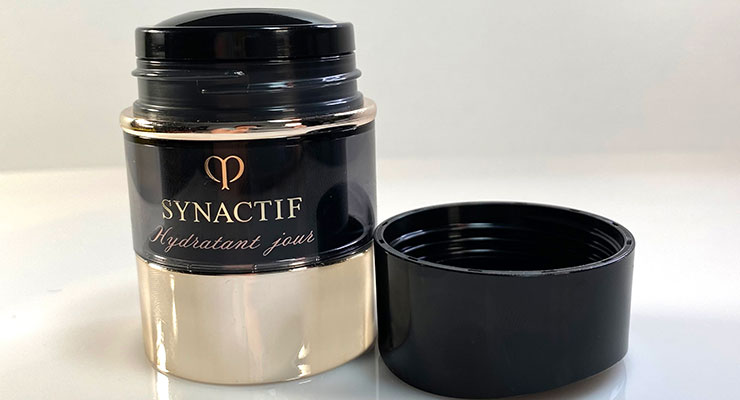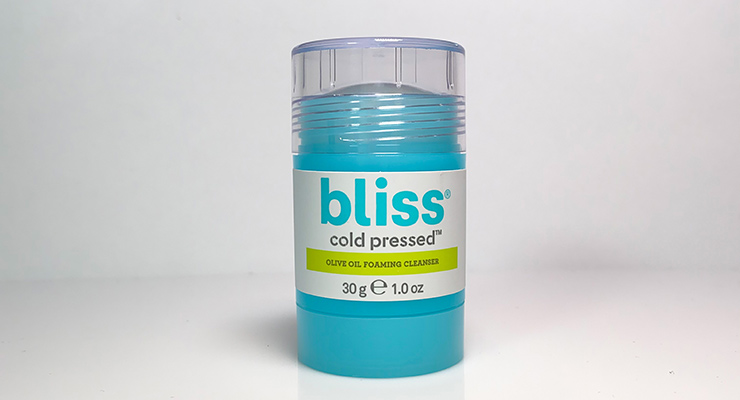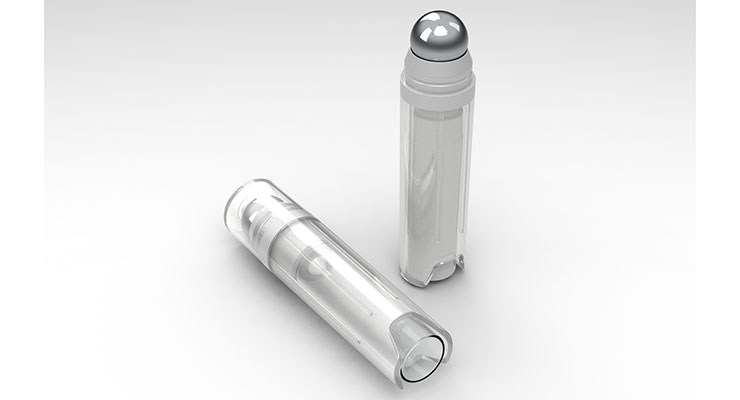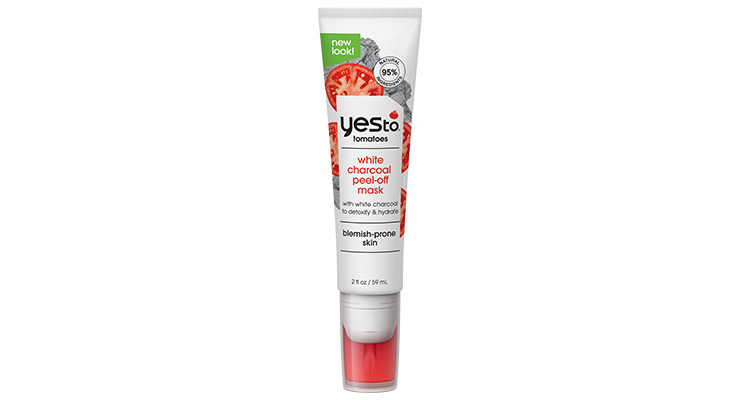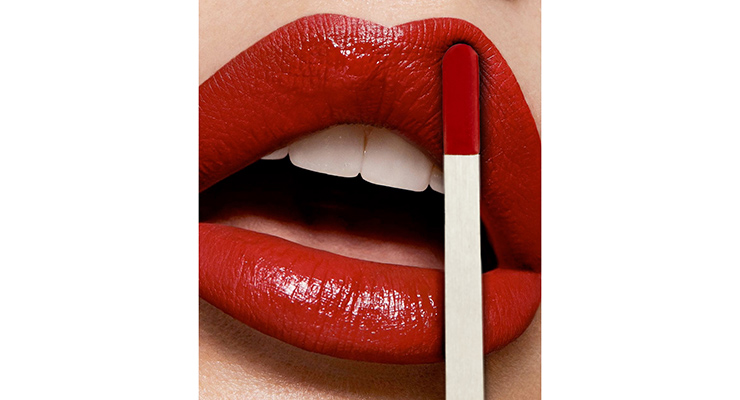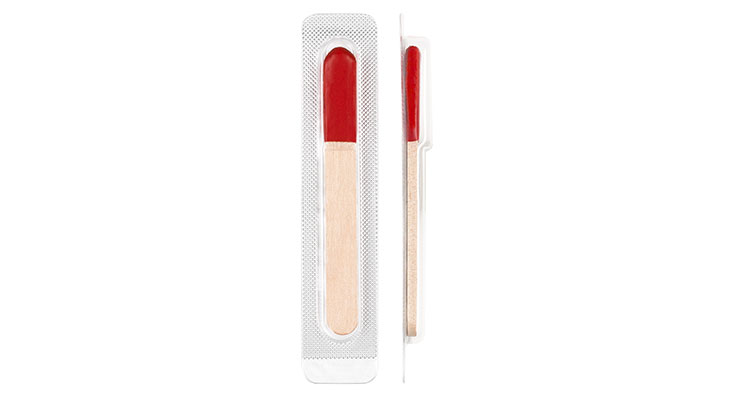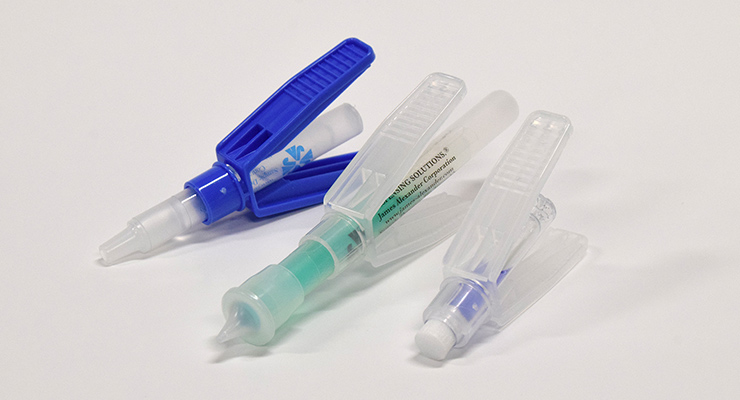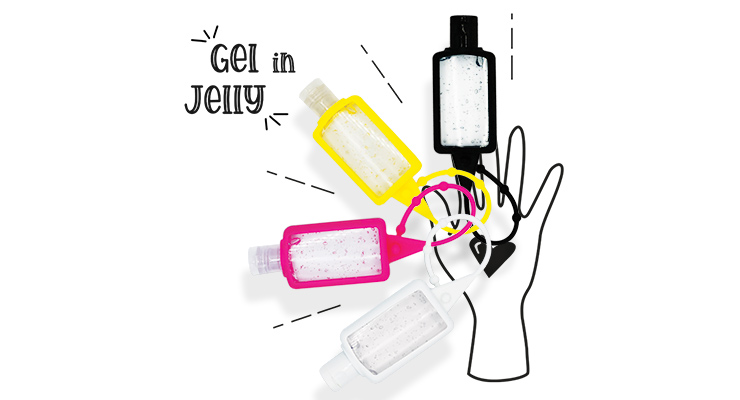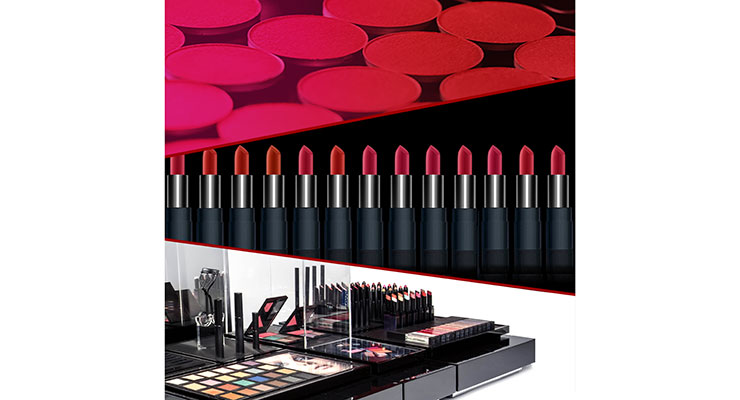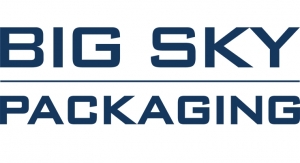Joanna Cosgrove, Contributing Editor03.01.21
The coronavirus pandemic has impacted every segment of global industry, issuing a fundamental challenge that businesses must adapt in order to move forward.
For the beauty industry, product trial is an important part of building rapport with customers, but it’s safe to say the days of open product sampling at retail are behind us.
One of the primary beauty industry focuses has been on how packaging can safeguard a more hygienic user experience. Packaging innovators have been busy creating new strategies that deliver authentic product experiences—at retail and at home—that emphasize improved safety and sanitization.
Arcade Beauty consulted extensively with retailers and display companies to learn what their post-Covid needs would be as they began to cautiously re-open in 2020. “It became very clear that the open tester environment will be going away, since the consumer will not feel safe trying foundation from a communal bottle or picking up a lipstick bullet and applying it to their lips,” comments Larry Berman, Arcade’s senior vice president of sales, North America.
It turned out, many of Arcade’s existing, smaller footprint technologies have proven to be a great fit for safe and cost-efficient retail product trial. The company is also adapting its core technologies to be smaller and more economical. “Our BeautiSeal, BeautiPod and LiquaTouch technologies were initially developed for high volume, promotional sampling,” Berman says. “By reducing their sizes [and] removing the cards they are attached to, we are now able to provide lower cost trials in hermetically sealed packaging.”
Arcade is currently working with Glossier, which chose Arcade’s BeautiSeal, BeautiPod and LiquaTouch configurations for lipstick, foundation and fragrance trials, respectively.
“This sampling program will allow the consumer to still have the same interactive experience they had pre-Covid-19, but with single-use safety,” says Berman.
Glossier worked with Arcade on packettes, BeautiSeal, BeautiPod and vial configurations for skin care, makeup and fragrance trials. Its packettes were 50mm x 90mm with a channel spout and a microperforated opening. The packettes each contain 2ml of product and were distributed in e-commerce packages. “Glossier sought consistency across formulas and their other formulas were already approved in a packette so, in this instance, consistency and cost-effectiveness was the priority,” notes Berman.
Doug Rofheart, senior sales executive, JP Packaging LLC, also reports seeing an increase in the overall adoption of unit-of-use and sample-sized configurations, not just for sampling but for use in place of primary-sized packaging, too. “We’re executing packages that hold six to eight and up to 12 product uses in a retail carton or other secondary packaging,” he says. “This allows for safety within the household as well as on the go, as we open back up and move about with less restrictions.”
Rofheart adds that brands are also going so far as to design stand-alone displays and dedicated kiosks to invite consumers to choose their own sample of a product they are interested in. “This allows the consumer to interact with the product and not people,” he says.
Hands-Free Solutions
If the coronavirus has taught us anything, it’s that germs are transmitted easily and unintentionally. Packaging innovators are working overtime to develop alternatives to the traditional ways that products are dispensed and applied.
Viva developed the Powder Tube as a new option for the touch-free dispensing of powdered products that would typically be scooped out of a vessel. “The smooth, resilient profile of a polypropylene tube, coupled with a center-dispensing switch cap and measuring cup over-cap, make it easy to dose out precise amounts of product without the usual spillage of powders,” says Melanie Gaudun, Viva’s business development manager. “This format goes beyond powders–it can be used for liquid formulas and many different applications including cosmetics, face and body powders, skin care cleansing and moisturizing and hair care formulas. For liquid formulas, the tube allows you to dispense the formula directly onto the area of application.”
Push-down airless dispensers are popular options that eliminate the need for repeated and potentially product-contaminating finger dips into a jar. Yoshino Cosmetic Packaging, represented in the U.S. by The Penthouse Group, has elevated the idea with the development of airless twist piston jars for Cle de Peau and Fancl brands.
“Rather than consumers pushing down on the top of the jar, the airless piston mechanism inside the jar is activated by twisting the actuator [and] consumers have found this to be more of an elegant, luxurious experience compared to the simple push-down type of piston jar,” explains Steven Ostrower, president, The Penthouse Group. “This is a highly functional innovation that is consumer-friendly with decorated arrows on the mechanism for easy understanding and use of this package.”
The LP Engine Jar from Lombardi Design & Manufacturing is another hands-free, push-down option for whipped creams and mousse-like formulations. Rather than focusing dispensed product at the center of a configuration, the LP Engine Jar’s entire screen moves down when depressed, providing a perfect product payoff with a quick swipe.
Lombardi has also translated its long history of producing full-size deodorant sticks into a range of Beauty Sticks. “This family shares a common 40mm diameter and is used for solid stick formulas like exfoliators, moisturizers, charcoal cleansers and glitter, all applied hands-free direct to the face, neck or body,” says Jack Albanese, Lombardi’s director of new business development, noting that the configuration has been adopted by Bliss for its Cleansing Sticks, for Boscia’s Charcoal Deep-Pore Treatment and Dermalogica’s Pre-Shave Guard.
R2AD from TNT Global Manufacturing is a patented airless application device featuring a removable and rotatable 360° metal ball applicator that distributes then facilitates finger-free application, and unlike other ball rollers, there’s no contact between the formula and the ball inside the package until the product is dispensed.
“A single press on the airless cartridge is enough to deliver a precise dose, without risk of air return and contamination of the formula,” explains Boris Schaefer, TNT’s vice president of sales USA. “After use, the removable ball of the R2AD applicator can be washed completely, or even sterilized.”
The magnetic, stainless steel ball provides unlimited movement, as well as a 300% increased contact zone compared to a conventional roll-on applicator. “Cooled, it optimizes the application for decongestant and draining care,” says Schaefer. “While warm, it facilitates the opening of pores for a better absorption.”
The configuration is reusable, recyclable and fully customizable in terms of size, colors and refill, and TNT offers refills made of glass.
Cosmogen has also been working on a variety of “safe contact” concepts that protect formulas and help consumers avoid touching their fingers to their face.
One of those concepts, called Squeeze’n Spatula, was selected by Yes to Tomatoes for its White Charcoal Peel-Off Mask. The package features a patented open/close rotary head system that allows dispensing when “on,” and then cleaning while protecting the formula when the head is turned “off.” The product is applied to the face and neck using a flexible and generously sized TPE spatula. The removable applicator and refill tube make for easy sorting, refilling and recycling.
Another Cosmogen innovation is Tint’n ReUse, an airless pump bottle with a reusable brush that can be re-attached to a new airless bottle once the original bottle is emptied.
Maud Lelièvre, Cosmogen’s marketing and communication director, explains that Tint’n ReUse protects the formula and avoids finger-formula and finger-face contact by directly dispensing product into a drop-shaped kabuki applicator brush. The brush can then be cleaned after use.
“In accordance with its CSR strategy, 100% of Cosmogen’s innovations comply with at least one of the 5Rs: Reduce, Recycle, Renew, Refill, Reuse,” Lelièvre says. “This results in particular in packs and applicators which can be dismantled, recycled and/or refilled.”
Single-Use Simplicity
Single-use configurations are a sure-fire way to eliminate cross-contaminated products.
MS BEAUTiLAB has chosen LIVSTICK by Livcer to ensure lipstick testing at trade fairs is safe and hygienic. “LIVSTICK is a stick made of wood or rigid paper-cardboard from sustainably managed forests or “green” plastic. “[It allows] lipstick to be applied with precision while offering the same ‘sensoriality’ as a classic lipstick,” explains Nathalie Dessirier, MS BEAUTiLAB’s marketing manager. “The sample has been eco-designed and is recyclable at 70%.”
MS BEAUTiLAB will use LIVSTICK to showcase lipstick in an iconic red called Red Star in five different textures (matte, ultra-matte, satin, creamy and shiny) to facilitate comparison. Dessirier says she looks forward to eventually presenting the products at MakeUp in Paris.
Single-use ampoules are another limited use option for the beauty segment. Glass and plastic ampoules from James Alexander range from 1- to 2.7ml in fill size and deliver hands-free application while extending product shelf life and offering tamper-evidence protection.
“All James Alexander packages are hands-free, meaning consumers do not come in contact with the product before application,” says Carol Gamsby, director of sales. “Product [is] applied [using a] swab tip once the glass ampoule is broken.”
To increase the hygienic factor, the company recently developed a patent-pending solution called The Activator, an accessory to its glass ampoule packages that allows for an easier activation of its glass packages for the elderly, or people with arthritis.
New & Improved Cleanliness Options
We’ve all become better hand-washers in the last year and this appetite for improved cleanliness practices has compounded the need for new ways to improve our everyday hygienic practices.
The pandemic inspired Lumson to develop Gel in Jelly, an innovative concept package for improved accessibility to sanitizing gels that’s responsive to the needs of the market and to new consumer habits.
“Thanks to its fresh and playful packaging appeal, this Gel becomes a product for everyday use that can easily be carried with you,” says Matteo Moretti, Lumson’s president.
Gel in Jelly is comprised of a pocket-size 30ml bottle enclosed in a soft, silicone carrying case that is customizable with color and with a brand logo. Gel in Jelly is unique because it can easily be attached to a purse, backpack, or belt for on-the-go use; it’s compatible with alcohol-based formulas; it can be refilled; and it has precision one-handed dispensing.
At Anisa International, the focus has been on how to combine cleanliness with ethical sustainability.
“More customers want to buy from purpose-driven brands that advocate for sustainability across their assortments, ranging from the materials used to packaging to manufacturing processes,” says Anisa Telwar Kaicker, founder and CEO. “After learning that 30% less water is used when you wash items with bar soap, I knew there had to be a smart solution to storing solid soap not only for travel but at home.”
The Soap Case from Anisa International is a storage solution for solid soap designed to keep soap hygienic and dry. It also functions as a canister to comfortably grip while washing brushes, which helps separate hands from the soap itself. “It was designed with small circular perforations on its base to allow soap to dry quickly without soap scum build-up or mess,” says Telwar Kaicker. “It helps to maintain the life of solid soap through optimal drying and breathability.”
There are still too many unknowns in play to predict what the complete retail landscape might look like post-Covid-19 but it’s clear that future shoppers will continue to seek improved hygienic options at the beauty counter and beyond.
Anisa International’s Telwar Kaicker, says, “Tomorrow’s brick-and-mortar shoppers will seek eco-conscious disposable testers in stores, such as biodegradable tissues or environmentally friendly cotton rounds [to] help ensure the sharing of tester products is hygienic but still reduces the amount of waste created at beauty counters through single-use disposable products,” says Telwar Kaicker.
“Pre-Covid-19, the open display testers were extremely un-hygienic [and now,] consumers will think twice about trying something that may have come in contact with someone else,” concludes Arcade’s Berman, adding that he believes the measures related to improved sanitation at retail will be the new normal. “The retailers and the brands will owe it to their customers to allow for safe trial in the future and single-dose, hygienic sampling will be here to stay.”
Three industry leaders say they have united to form a “revolutionary industry alliance,” creating a full-service supply chain nucleus for the development, manufacturing and merchandising of beauty products on a global scale.
Formed in January 2021, The Vertical Beauty Alliance enables beauty brands to leverage the collective experience, expertise and resources of prestige beauty manufacturer MANA Products, packaging firm Meiyume and retail design firm RPG—each with leadership in product ideation, innovation, formulation, manufacturing, packaging and in-store experience. This new association brings customers innovation, reliable speed to market and a global footprint for creativity, formulation and manufacturing of their brand essentials.
Bruce Teitelbaum, CEO of RPG, says this collaboration will also ensure safety innovation plays a paramount role in the store experience. “Consumers want to test, try, engage and buy in real life with assurance that their surroundings are safe,” he says. “Shifting needs among retailers and consumers require product testing tools to be strategically incorporated into existing infrastructures and work in tandem with new methods for product engagement.”
To that end, he adds, “RPG has designed, developed, and patented low-tech, single-dose and dry air modular dispensing systems to maximize self-service and minimize risk.”
From an R&D standpoint, Teitelbaum says The Vertical Beauty Alliance will also deliver innovation in the form of best-in-class mixing, filling and supply solutions in Europe, Asia and America, as well as supply chain resilience and access to an extensive library of innovative formulas and finishes. Furthermore, it will collectively identify and harness white space in retail categories, markets and environments. From forecasting trends to providing in-store solutions, including displays, fixtures, retail environments, and data analytics, this alliance will re-imagine turnkey product development and customer experience where digital meets brick and mortar.
For more info on The Vertical Beauty Alliance, see: “A New Partnership Delivers Turnkey Beauty Solutions,” here.

